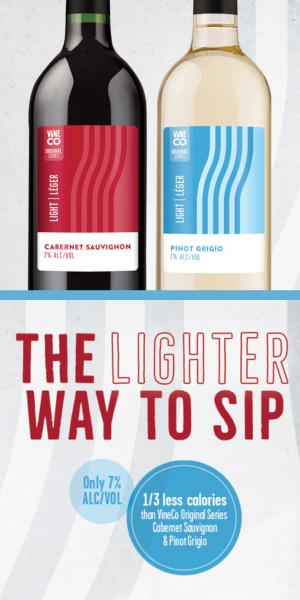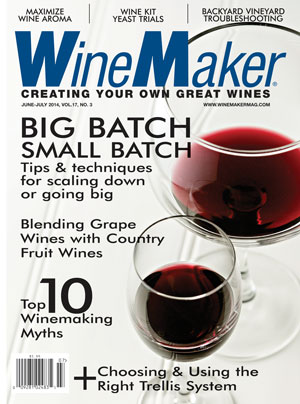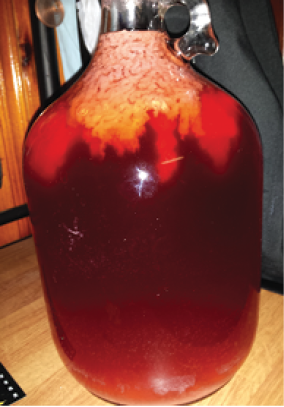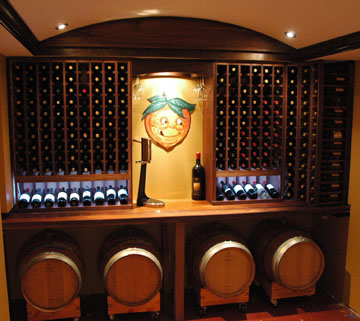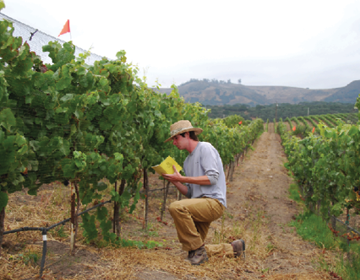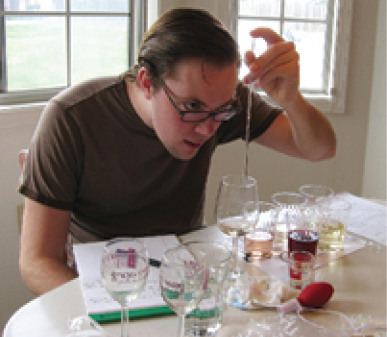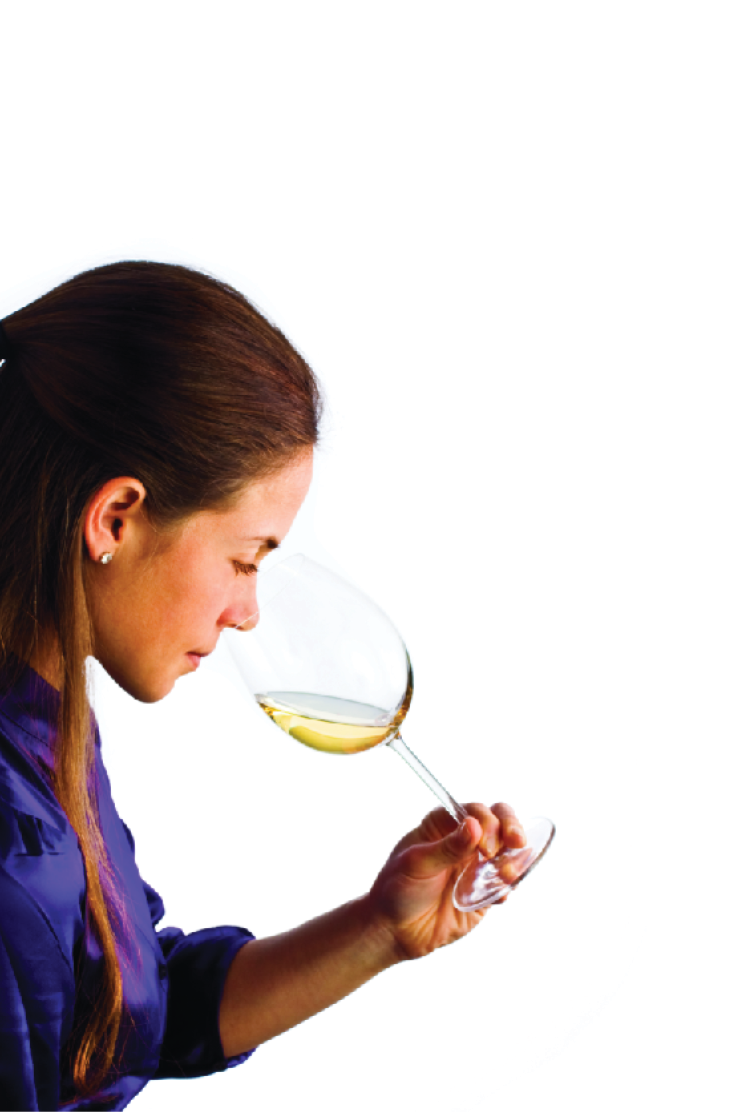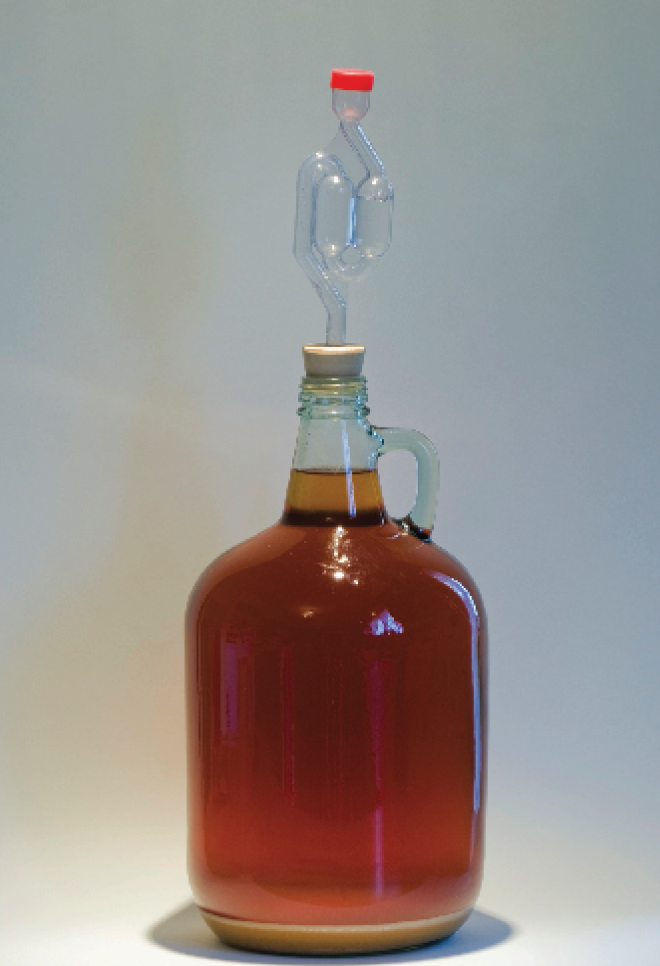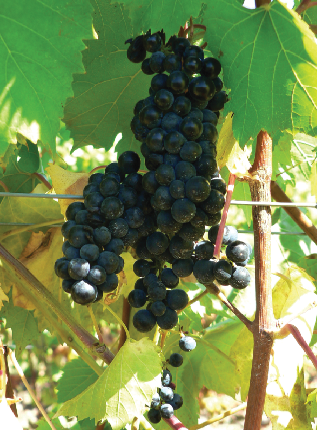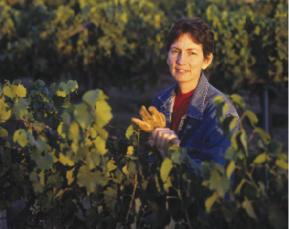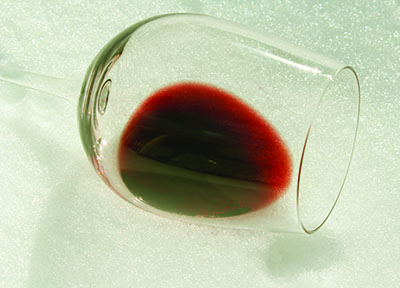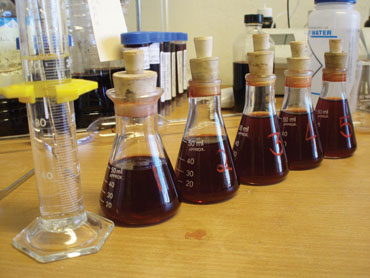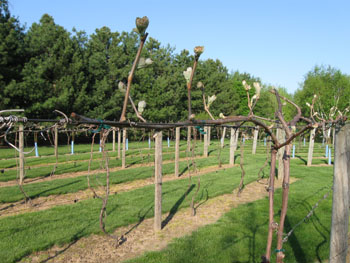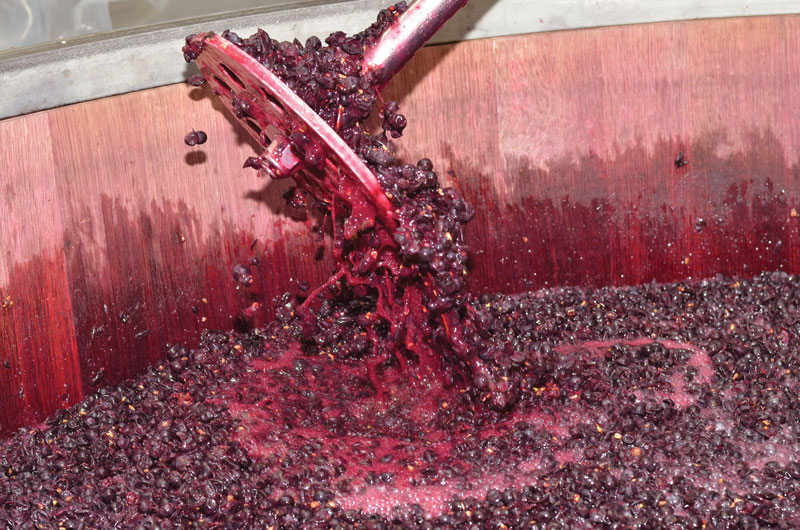Jun-Jul 2014
Hybrid Grapes Winemaking
Good for you for planting a nice selection of grapes! You’re absolutely right, that with Utah’s higher latitude, often-high altitude, and warmer summers, you get a bit more extreme growing season than
Over-Sulfited Wine
Oh boy, oh boy, oh boy. Sounds like you have a lot of sulfur dioxide in that wine! Assuming standard FSO2 for bottled wine being around 25 ppm, am I correct in
Free SO2 Levels
It seems that you and Craig are going through many of the same issues (see this question and answer). Like I mentioned to Craig, it’s really impossible to add enough sulfur dioxide
“Fruit Floaties”, Sweetening Wine, Free SO2 levels
Because sulfur dioxide is so easily-oxidizable, hydrogen peroxide naturally ‘finds’ the easily-oxidized SO2 and the two hopefully cancel each other out.
Detecting Vineyard Problems
Know what to look for to help identify problems in your home vineyard before they turn catastrophic.
Blending Fruit and Grape Wines
“Blending is a natural procedure, honest, necessary, and in accordance with historical events.” With that quote, eminent wine authority Emile Peynaud gives us permission to play with our wines. While he was
Maximize Wine Aromatics
The aromatic calculus for whites differs from that for reds, and aromatics in young wines are a world apart from the aromatics of well-aged wines. There are lots of places where you can do things in your home winery to amplify aroma, which are also the same places you can let them slip away.
Small Batch Winemaking Techniques
Making wine in small batches, usually from 3 to 5 liters (3 to 5 quarts), is both easier and at the same time more exacting than making wine in much larger batches.
Big Batch Winemaking Techniques
Are you ready to move up from small batches of wine? In this article we are going to discuss the specifics of making “big” batches of wine — that is, 10 gallons
Marechal Foch
Marechal Foch is a cold-climate red grape that has dispersed plantings in the Midwest, Northeast, and Canada.
“Fruit Floaties” — Strawberry Wine
I just saw your picture and wow, that does indeed look like a floating brain — or two! Luckily, that is a great shot of what I would call typical “fruit floaties”
Organic Grape Growing: Tips from the Pros
Growing grapes organically, like any other crop, is often more work than using synthetic fertilizers, solutions and sprays. But in the end, many winemakers who embrace organic growing believe the resulting wines display the purity of the fruit the way that Mother Nature intended.
Preventing Oxidation
An introduction to preventing oxidation of your wine.
Yeast Trials With Wine Kits
Just because your wine kit comes with a certain yeast, that doesn’t mean you can’t experiment with other options.
Sweetening Wine Without Refermentation
Unfortunately, there are only so many options for preventing fermentation in sweet wines and they all involve some degree of sacrifice or difficulty. The list of “cons” is long compared with the
Vineyard Trellis and Training
There are several options available to a backyard grape grower when considering which trellis configuration and which training system to use. How do we focus on what’s important in a trellis and
